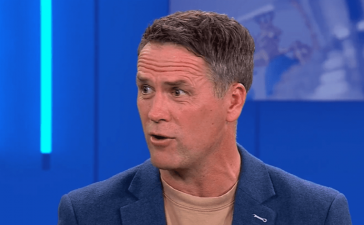Pub giant JD Wetherspoon has swung back to a significant profit as higher food sales helped its post-pandemic sales recovery continue.
Analysts said on Friday that the chain will “benefit from trading down” by customers squeezed by the rising cost of living.
The company, which runs 826 pubs across the UK, saw total sales rise by 10.6% to £1.92 billion for the year to July 30.
Wetherspoons said like-for-like sales grew by 12.7 percent year-on-year, as it benefited from a significant rise in food sales, which increased by 17.7 percent.
Meanwhile, bar sales increased by 9 percent, its hotel business witnessed an 11.8 percent rise and there was a 26.4 percent increase in sales through slot and fruit machines.
Bosses at the business said sales growth has continued in recent weeks, with like-for-like sales increasing by 9.9% over the nine weeks to October 1.
Tim Martin, chairman of JD Wetherspoon, said: “Wetherspoon continues to perform well.
“The company currently anticipates a reasonable outcome for the financial year, subject to our future sales performance.”
During the year, Wetherspoon slightly trimmed its pub estate, as it sold, closed or terminated the leases of 31 pubs.
It said there was a £7 million cash boost after fees as a result. Wetherspoons also opened three pubs.
James Wheatcroft, equity analyst at Jefferies, said: “Momentum continues into the current year.
“We argue that Wetherspoons’ low relative price positioning and well-located and well-invested premises will gain market share and benefit from trading down.”
Roberta Ciaccia at Investec added that the latest figures were “strong and broadly in line with market expectations”.
It’s good news after tough times for the pub industry and Wetherspoons, which was forced to close dozens of its pubs earlier this year to cut back on spiralling costs.
The company’s six-month financial statement in March showed the policy could well have worked, as the chain was able to eke out slim profits in its latest results. While supply and staffing issues are now resolved, persistent inflation and a spike in energy bills mean hospitality is not yet out of the woods.
The coronavirus pandemic and lockdowns devastated the hospitality industry. Revenues in April 2020 were roughly eight times below those of 2019.











